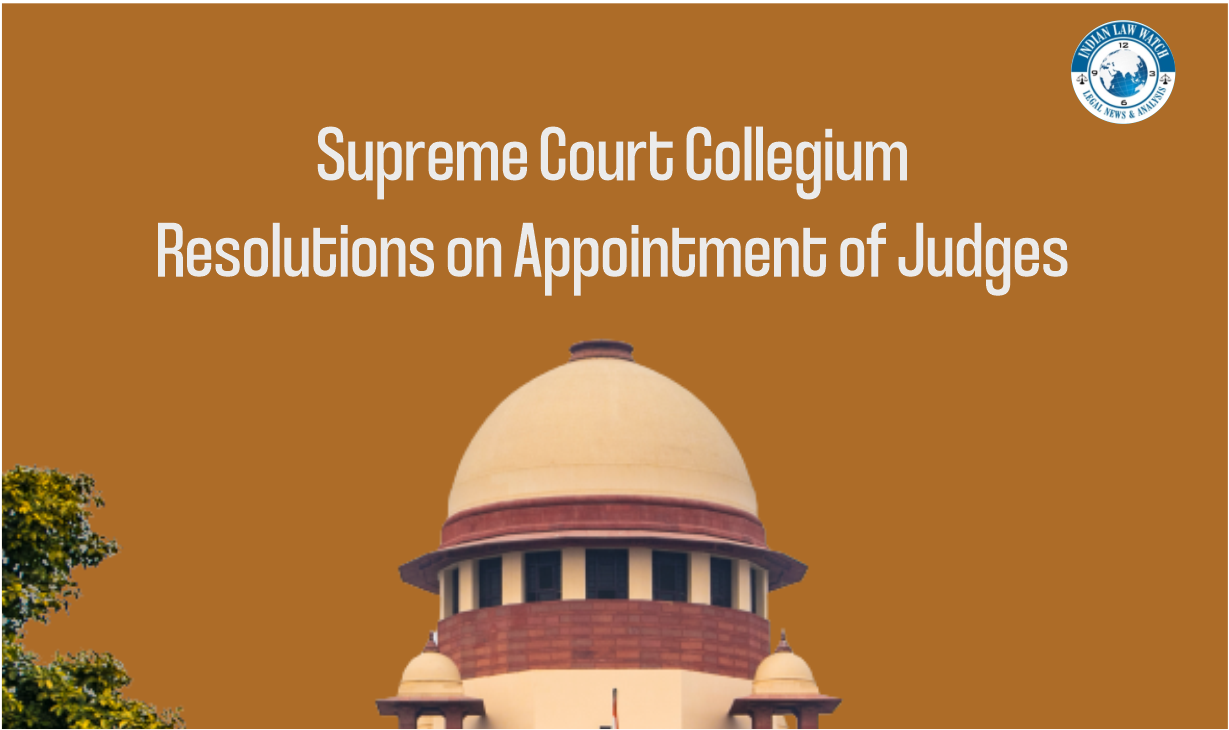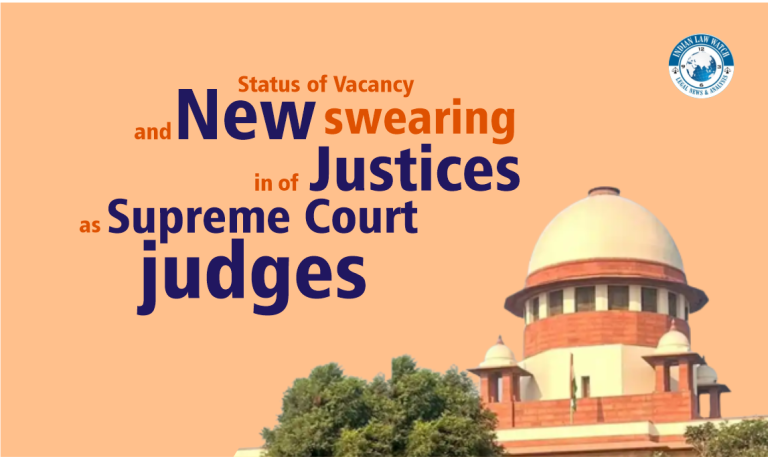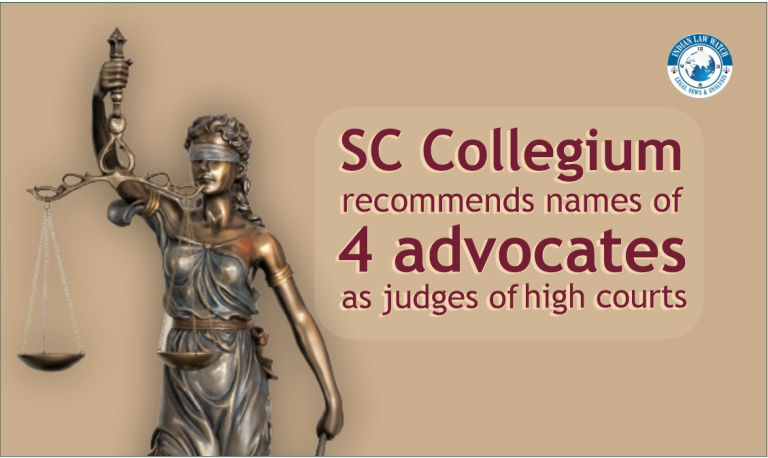

Supreme Court Collegium headed by the Chief Justice, Hon’ble Dr Dhananjaya Y. Chandrachud and other senior judges resolved to recommend following judges and advocates to High Court of Gujarat and Gauhati:-
Gujarat
- Ms. Susan Valentine Pinto,
- Hasmukhbhai Dalsukhbhai Suthar,
- Jitendra Champaklal Doshi,
- Mangesh Rameshchandra Mengdey, and
- Divyeshkumar Amrutlal Joshi, Judicial Officers.
The order
The Collegium also recommended the following advocates to the High Court of Gujarat:-
- Shri Devan Mahendrabhai Desai and
- Ms Moxa Kiran Thakker
The order
Gawhati
The Collegium also recommended elevation of Shri Kardak Ete, Advocate to judge in Gauhati High Court. Earlier, the Collegium of the Gauhati High Court comprising of the then Chief Justice and two seniors most Judges unanimously made the recommendation on 01 December, 2022. The Chief Ministers and Governors of the States of Assam, Arunachal Pradesh, Mizoram and Nagaland have concurred with the recommendation.
Key Insights
- The Law: It may be recalled that the Constitution of India has provision in Article 124(2) for the President to appoint Chief Justices and judges in the Supreme Court and High Courts in consultation with the Supreme Court. After several Court Cases and an Act, now the system of Supreme Court consultation has taken the shape of a collegium headed by the Chief Justice of Supreme Court and other senior judges, who time to time resolve to recommend appointments to the Government. In the past there has been effort on the need for greater transparency and accountability in the selection process. The Government generally follows the recommendations of the collegium system. A paper on “Judicial Independence and Collegium system in India” by Sunita Kaler reflects. Collegium System is a legally valid system of appointment and transfer of judges in the SC and all HCs. The names are decided by a forum of the Chief Justice of India and the four senior-most judges of the Supreme Court. Although there is no mention of the Collegium either in the original Constitution of India or in successive amendments. The recommendations of the Collegium are binding on the Central Government if the Collegium sends the names of the judges/lawyers to the government for the second time. But a time limit is not fixed for the government to give assent to the names.
- Recent developments: The government believes collegium system needs reform. The Supreme Court recently had remained non-committal about hearing at an early date a petition seeking reconsideration of the collegium system of judicial appointments to the Supreme Court and High Courts. In an urgent mentioning before Chief Justice of India D.Y. Chandrachud, petitioner-advocate Mathews Nedumpara said the case had been mentioned twice before in November and January, but the Registry had still not listed it for hearing.
- Restoration of the Collegium system: By a majority opinion of 4:1, on 16 October 2015, Supreme Court struck down the constitutional amendment and the NJAC Act restoring the two-decade old collegium system of judges appointing judges in higher judiciary. Supreme Court declared that NJAC is interfering with the autonomy of the judiciary by the executive which amounts to tampering of the basic structure of the constitution where parliament is not empowered to change the basic structure.
- Practice in UK: There is a selection commission for recommendation of the names. The Supreme Court is the highest court of the United Kingdom for civil and criminal matters in the jurisdictions of England and Wales and Northern Ireland. Judges are appointed by the King on the advice of the Prime Minister, who receives recommendations from a selection commission.





